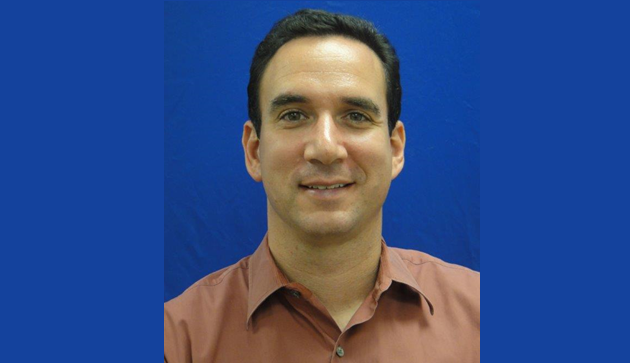The medical and literary world lost some of its soul last week with the passing of the physician writer Dr. Sherwin Nuland.
With HM14 coming up, I planned for this blog post to write about the session I’m giving with Greg Maynard and Cheryl O’Malley on Mentoring Quality Improvement. For those of us a number of years out of residency, quality improvement was likely not part of our training. In our session, we will discuss how being a mentor or mentee can help fill that knowledge deficit. That personal one-on-one mentoring can help in many other areas: fostering career growth, learning new skills, growing as a person and a physician.
I never met Dr. Nuland, but reflecting on his passing made me think about mentoring in another light. Can we have mentors we never meet?
I was fortunate to share an email conversation with Dr. Nuland a couple of years ago in the hopes of bringing him to Hospital Medicine 2013. His work as a physician writer is nationally known; he won the National Book Award for How We Die, and wrote several amazing works on life, medicine, and medical history. He was honored to potentially speak to a like-minded group of colleagues, and was willing to wave much of his usual fee. Unfortunately, we couldn’t make it work.
My last post was sprinkled with some medical history inspired by reading Doctors: The Biography of Medicine. Dr. Nuland’s book lights up stories about our medical ancestors, painting pictures of noble spirits that led the way to modern medicine. He devotes a chapter to René Laennec, who invented the stethoscope. A physician from the early 19th century, Laennec’s career tracked the origins of the Paris School of Medicine. This was the start of the teaching hospital where bedside medicine arrived, when physical examination opened up a whole new world, clinical pathological correlation ruled, and diagnosis was essential. He may very well be describing the first hospitalist. Reading this chapter deepens my pride and passion for being a hospitalist, as well as my pride in wrapping the stethoscope around my neck every morning and reaching back 200 years as I place it on the chest of each patient.
In his book, The Soul of Medicine: Tales from the Bedside, the first chapter typifies his way of weaving medical history, storytelling, and patient narratives. Dr. Nuland describes a case from residency as a one-of-a-kind surgical phenomenon. He presents his overnight surgical success in the morning to his chief, thinking case write up, publication, perhaps “Nuland’s sign.” The chief retrieves a 16th century text in his office, written by the great surgeon Paré, and pinpoints in the original French an exact match. Bonding with his chief, his mentor, he is also humbled by the news, and it seems to announce the trajectory of Dr. Nuland’s search for medical secrets and histories.
How We Die teaches me to better understand the compassionate care of patients at the end of life. Dr. Nuland sums it up for the reader with his own reflections in the last chapter entitled, The Lessons Learned. The sadness of dying alone, the accidental squashing of a patient’s hope, or the transference of his wishes onto a patient are all laid out. He honestly discusses situations he yearns to redo. For instance, he convinced a patient to undergo a procedure who had been adamantly refusing one, and was willing to accept death. The physician drive to find the answer, to always dig deeper, to push his own agenda should never trump the patient’s desires. He writes, “Had I the chance to relive this episode, or some others like it in my career, I would listen more to the patient and ask her less to listen to me.” As true patient-centered care begins to take hold today, Dr. Nuland was writing eloquently of it for years.
I call upon many physician writers to help me reflect on medicine. As recently suggested, maybe literature develops empathetic care, by sharing stories that help connect us with cultures, diseases, histories, that we may not otherwise come to know. I have had many mentors over the years, some come and go. A couple of great ones I still meet with regularly, and many I will only have their words as a legacy. No more new works by Dr. Nuland, but through his words, he will be near, on my nightstand, at my patient’s bedside, as a guide and a mentor.
Ours is a profession that needs to feast on continuous improvement, compassion, and communication. You don’t have to do it alone. Find your mentors. They often sit in the office across the way, or somewhere outside your department, or perhaps in a hospital across the country. But they also may reside in a story, in that book on your shelf.
“No author writes alone,” says Nuland in The Wisdom of the Body. “Whatever his degree of solitude, the silent influence of seemingly long-forgotten words is always at his elbow, and so are the men and women who spoke them; the reading and the talk of a lifetime converge on his pages.”
As a writer, Dr. Nuland visited his mentors with reflections in the past. As a reader, I visit Dr. Nuland as a mentor on the page.
Can we have mentors we never meet?
I think so. Mentors are guides who inspire, spread new ideas, offer expert advice, and allow for reflection. Though I never met Dr. Nuland in person, he did all those things for me. I thank Dr. Nuland for being a mentor; I am grateful that his stories will be teaching me lessons for years to come.



Leave A Comment